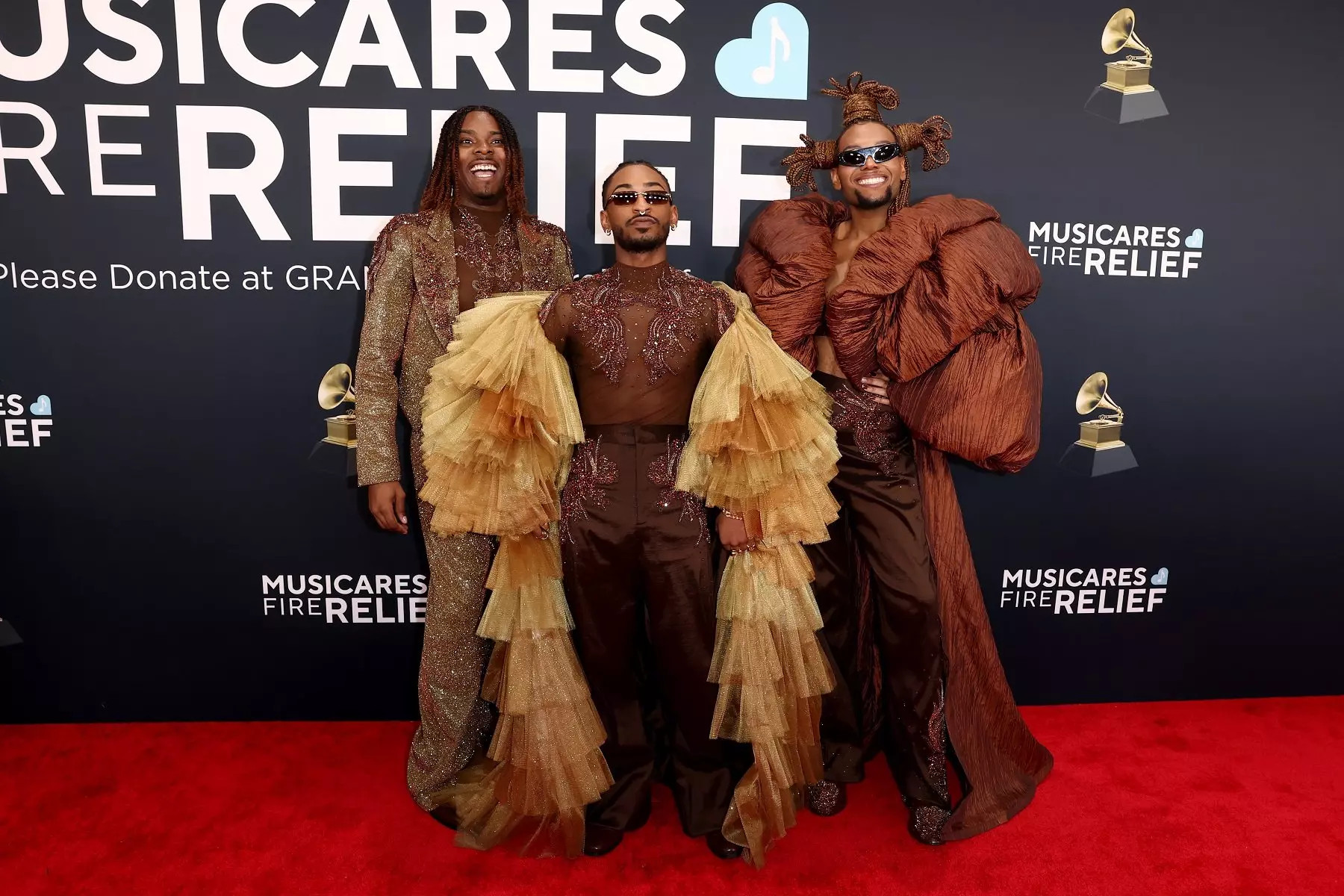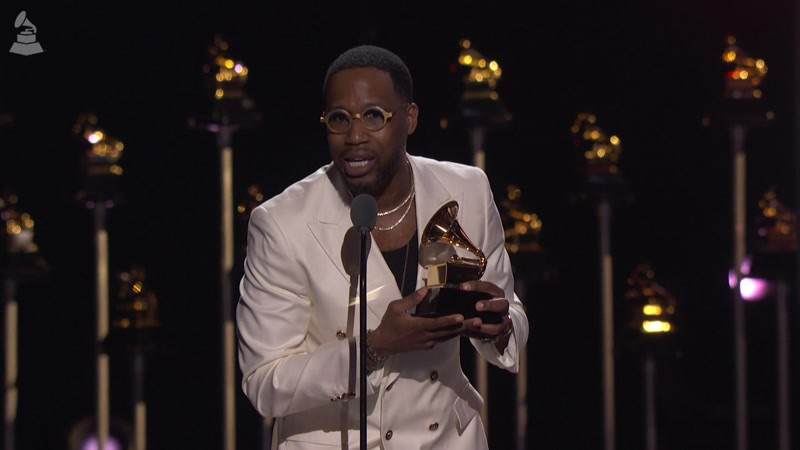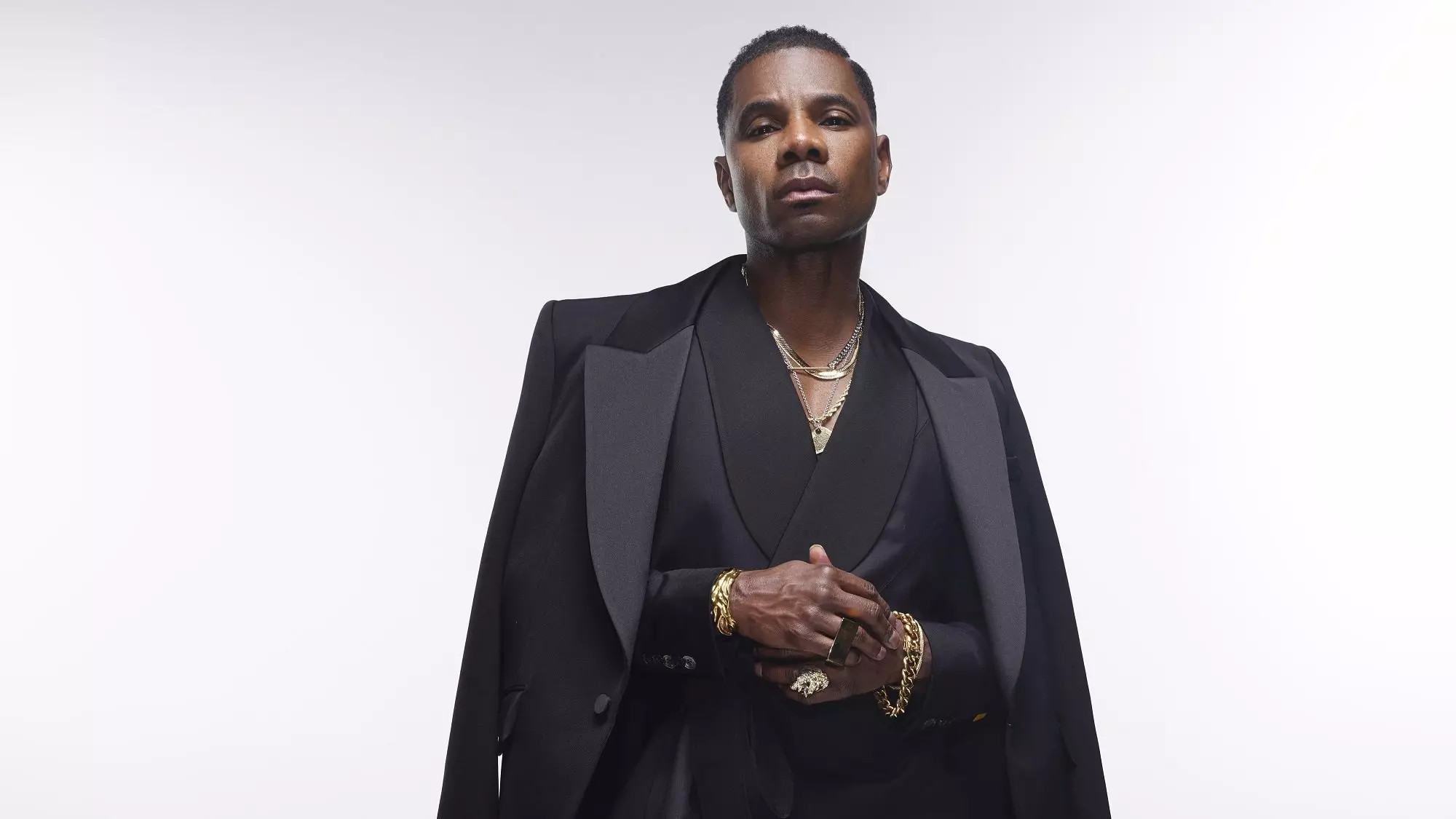The 2025 GRAMMY Awards telecast not only celebrated musical excellence but also served as a platform for philanthropy, raising funds for those impacted by the Los Angeles wildfires. Amidst this backdrop of community support and musical appreciation, the nomination of The Harlem Gospel Travelers (HGT) for Best Roots Gospel Album marked a significant moment, highlighting their unique blend of faith, musicality, and identity. While the coveted “Song Of The Year Grammy” often captures headlines, HGT’s journey to a GRAMMY nomination in the gospel category is a compelling story of artistic dedication and breaking barriers.
Ifedayo Gatling, a leading voice in The Harlem Gospel Travelers, had a premonition. Alongside bandmates George Marage and Dennis Bailey, Gatling envisioned a GRAMMY nomination. This wasn’t just wishful thinking; it was a declaration of intent, fueled by prayer and a deep belief in their music. After a particularly inspiring studio session for their album Rhapsody, Gatling confidently announced that this was their GRAMMY-nominated work.
Their conviction proved true. Rhapsody, their third album, earned a nomination for Best Roots Gospel Album at the 2025 GRAMMYs. This 10-track project reimagines gospel classics from Numero Group’s Good God! A Gospel Funk Hymnal series, seamlessly merging the group’s passion for ’60s and ’70s funk and soul with a contemporary gospel perspective.
“Many hold preconceived notions about church and gospel music, often focusing on the negative,” Gatling explained to GRAMMY.com. “We aim to present a different facet, showcasing the positive essence of church and gospel – the experience of divine love. This calling transcends any words we can express.”
 The Harlem Gospel Travelers
The Harlem Gospel Travelers
Although Cory Henry ultimately won the Best Roots Gospel Album GRAMMY for Church, The Harlem Gospel Travelers’ nomination was groundbreaking. They became the first openly queer group, with Gatling being the first openly nonbinary artist, to be nominated in this category. While their identities weren’t concealed previously – their performances often hinted at a flamboyant, queer sensibility – Rhapsody marked their first album cycle where they openly embraced their identities.
Sharing this aspect of their story was a courageous step, especially within a genre often perceived as traditional. “This leap of faith not only led to our GRAMMY nomination but also positioned us as beacons of representation,” Gatling emphasized. “It demonstrates to others that their dreams are attainable. The ability for queer individuals and young Black people to see themselves in us, for Christians to see us, signifies the dismantling of barriers and the shattering of glass ceilings.”
The Genesis of The Harlem Gospel Travelers
The Harlem Gospel Travelers’ journey began in 2014 in their Harlem neighborhood. Musician and producer Eli “Paperboy” Reed was auditioning singers for a youth music education program when the voices of the future HGT quartet (then including Asher Bethune) rose to the forefront. Collaborating with Reed, they released their debut album, He’s On Time, before disbanding as members pursued higher education. However, when their Colemine Records debut gained traction, Reed encouraged a reunion, resulting in Look Up!, an album featuring original songs.
Years later, and after several singles, HGT reunited to interpret songs by gospel artists like Pastor T.L. Barrett, Shirley Ann Lee, and Jonah Thompson, culminating in Rhapsody. Recorded with their Look Up! rhythm section and gospel organist Gregory Kelly, Rhapsody felt like destiny when the nomination arrived – Marage learning the news on the street, Bailey amidst moving, and Gatling in an airport.
The Harlem Gospel Travelers discussed with GRAMMY.com the themes of divine purpose, authenticity, and their mission to spread gospel’s message to believers and non-believers alike. Following their GRAMMY experience, HGT embarked on an Australian tour supporting Eli “Paperboy” Reed in May.
Faith, Recognition, and the GRAMMYs: A Conversation with HGT
What does a GRAMMY nomination signify for you as artists and as people of faith within gospel music?
George Marage: “Recognition for my voice, whether solo or as part of a group, has been a lifelong aspiration. This GRAMMY nomination feels surreal, especially sharing it with my closest friends. At this stage, it felt improbable, but divine intervention works mysteriously, and now is our moment.”
Dennis Bailey: “There’s an initial numbness until the reality of ‘GRAMMY-nominated’ sinks in. Then, the excitement reignites, and it feels like experiencing the initial spark all over again.”
Ifedayo Gatling: “I keep telling my mom, ‘I can’t believe it, yet I can.’ We’ve worked and prayed for this. George consistently affirmed, ‘We’re next.’ In the studio, I declared, ‘I’m going to the GRAMMYs next year.’ After recording a particular song, I texted our producer, predicting a GRAMMY nomination. It felt divinely ordained.”
 Dennis Bailey of The Harlem Gospel Travelers reflects on the surreal feeling of a GRAMMY nomination.
Dennis Bailey of The Harlem Gospel Travelers reflects on the surreal feeling of a GRAMMY nomination.
With Rhapsody, you shared more personal narratives. How much of your identities were visible in your previous work?
Gatling: “The defining difference with Rhapsody is our open declaration of being queer. This resonated deeply, allowing our audience to feel seen in a space where they might have felt excluded. Recognizing this impact, we knew we couldn’t limit ourselves or those who needed to see us. We chose to reintroduce ourselves, inviting everyone, regardless of background or belief, to experience God, gospel, and joy through our music and presentation. Whether you’re queer or not, religious or not, you can connect with HGT.”
Music transcends boundaries. What was the creative process behind Rhapsody?
Gatling: “We each selected songs that highlighted different vocal styles, personal preferences, and aspects of our personalities. Collaboration fueled experimentation and innovation in our vocal and creative approaches. For instance, ‘Get Involved’ with Dennis started with a hip-hop influence and evolved into a full rap during recording and live performances. We titled it Rhapsody to reflect this transformation – a sonic, physical, and life transformation.”
The Good God! compilations are remarkable. How did that era of gospel music influence HGT?
Bailey: “The ‘far outness,’ the pervasive message of love, and the strong sense of community from that era are deeply appealing.”
Marage: “In the ’60s and ’70s, authenticity reigned. People expressed genuine emotions. We strive for that rawness. We minimize pitch correction, aiming for a live sound. Bringing that realness to contemporary music is unique.”
Gatling: “That era demanded raw talent and genuine passion. That artistic integrity inspires us and fuels our current work. It’s the artistry we grew up admiring.”
Were you exposed to this era of gospel music growing up, alongside secular genres?
Gatling: “Growing up with parents in their 50s and 60s, I absorbed their music and my grandparents’ generation’s music. This broad spectrum shaped our sound. I come from a Baptist church background, while George’s is Catholic.”
Marage: “Gospel wasn’t prominent in my early years. I leaned towards secular genres like R&B, Michael Jackson, and Mariah Carey. Joining a gospel program with Ifedayo introduced me to gospel and quartet styles, broadening my musical horizons.”
Bailey: “Faith guided me. Though not raised in church, I was around church music. Later, I appreciated the musicality. I also enjoyed secular artists like John Legend and Mariah Carey. In college, a spiritual journey led me back to gospel. It was serendipitous.”
Is there a song on Rhapsody that holds special significance?
Marage: “‘God’s Love’ is a favorite. Singing in falsetto, I initially questioned my range compared to the original singer. It pushed me to reimagine an already incredible song.”
Bailey: “‘Get Involved’ encouraged me to embrace my relaxed persona. It embodies my personality.”
Gatling: “‘Searching for the Truth’ felt GRAMMY-worthy from the start – and it was. ‘God’s Been Good to Me’ is personally significant. I channeled the spirit of Aretha Franklin and Patti LaBelle, aiming for limitless vocal delivery. Reaching that high note in the studio was a powerful moment. ‘Have You Tried Jesus’ is anointed. Regardless of belief, its energy is undeniable. And ‘God’s Love’ showcases our harmonic unity – one voice, one band, one sound.”
Navigating Faith and Identity in Gospel Music
Despite a history of queer and trans gospel artists and contemporary queer Christian musicians, have you faced challenges within church communities regarding your identities?
Gatling: “I was raised in the church. The church embraces LGBTQ+ individuals more than it openly admits. Many of us are present within the church. While acceptance can be challenging, church is fundamentally a space of love and worship when you find your community. Finding your church home is crucial, and HGT embodies a church home, bringing the essence of church and gospel to diverse spaces – clubs, festivals, wherever we connect. We offer an experience of love that you can carry and build upon, creating your own church family.”
Is consciously broadening gospel’s reach to diverse audiences, including those outside of faith traditions, a goal?
Gatling: “It wasn’t initially intentional, but we embraced this path. None of us envisioned a professional gospel music career. It unfolded organically, and we accepted the calling. We recognize our audience isn’t solely churchgoers, and that’s perfectly fine. We embrace diverse forms of praise. Our bio reflects this duality – ‘On the way to church, we praise God. On the way back, it’s ‘Back That Azz Up.” It’s about balance. We offer a fresh perspective on church and gospel, demonstrating the experience of divine love. It’s a mission larger than ourselves.”
George or Dennis, what are your perspectives on gospel’s appeal to those outside traditional faith spaces?
Bailey: “We represent a dichotomy of humanity often overlooked in gospel. We are human, relatable – we enjoy life, but we are also deeply devoted to our faith. Showing that balance is beautiful and humbling.”
Marage: “We aren’t promoting any specific identity; we are being authentic, truthful, and God-loving. Gospel is about good news, and that’s what we share – positive messages and energy. We believe we’re on the right path.”
Reports suggest some resistance from traditional gospel circles due to HGT’s open identities and sonic style. Is this accurate?
Gatling: “Mainstream gospel often adheres to a specific niche. We exist in a gray area because we don’t solely identify as gospel artists. Gospel music inspires and infuses us, but we could create music in other genres while maintaining our faith. It’s not about rejection; it’s about evolving perceptions of music and artists. It’s taken time for audiences to understand us, just as it’s been a journey for us to define ourselves. There’s no negativity, only positivity and growth.”
 The Harlem Gospel Travelers bring their energetic performance to a diverse audience.
The Harlem Gospel Travelers bring their energetic performance to a diverse audience.
Gospel Music as Protest and Praise
Your singles “It’s My Business” and “Fight On” blend praise with protest. How do gospel and social justice intersect in your music?
Gatling: “Gospel inherently addresses societal issues, encouraging and empowering people with love and positivity. Historically, the Black church fostered community and safety for Black individuals. Churches were central during the Civil Rights Movement, and gospel music played a vital role in inspiring change. ‘Fight On’ begins as a traditional hymn, inspiring a call for unity and love to overcome societal challenges. ‘It’s My Business’ addresses violence and injustice faced by transgender individuals globally.”
Are there any upcoming projects you can share?
Gatling: “We are working on a new album – our most ambitious yet in terms of song count and production. As musical historians, we evolve through musical eras. Our first album was ’50s/’60s inspired, Rhapsody leaned into the ’60s/’70s. The next chapter? ’70s/’80s – hinting at a new sonic direction.”
Explore More Gospel and Christian Music
The Harlem Gospel Travelers “Accepted The Assignment” To Bring Praise Music And Pride To The Masses
Best Contemporary Christian Music Performance/Song
Cory Henry Wins Best Roots Gospel Album
Living Legends: Kirk Franklin On Bridging Genres, Breaking Barriers & Leaving A Lasting Legacy In Gospel Music
Kirk Franklin Reveals Where He Keeps His GRAMMYs
